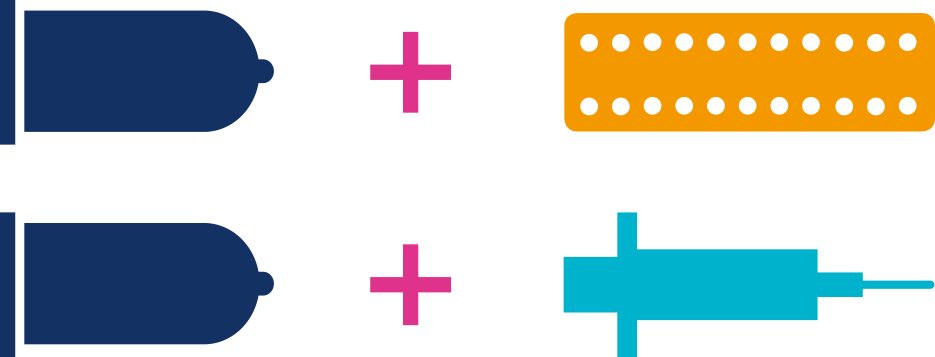Sex and contraception
Contraception stops sperm from fertilising an egg, so an unintended pregnancy doesn’t occur when having sexual intercourse (penis in vagina).
Every month the ovary produces an egg. When ejaculation occurs from the penis, the semen contains millions of sperm. It takes only one of these sperm to fertilise an egg to begin a pregnancy.
Contraception is used to prevent unintended pregnancy.
Healthy relationships
Talking with your sexual partner about sex and contraception is a good idea.
Sex may seem difficult to discuss at times, but being able to talk openly and honestly about it with your sexual partner is a positive step towards a healthy relationship.
Depending on your situation, your choice of contraception may be something you decide on your own or together with your partner. In any case, it’s important that everyone involved takes responsibility for contraception each time they have sex.
Pair up: safe sex and contraception
Using a condom with another type of contraception is the only way to stop an unintended pregnancy and sexually transmissible infections (STIs).
STIs are infections passed from one person to another through sexual contact and condoms are the best protection against them. This means that even if you‘re using another form of contraception, it’s still important to practise ‘safe sex’. Safe sex means using a condom every time you have sex.
Pair-up condoms with another form of contraception to prevent STIs and pregnancy.

To turn-up the pleasure, you may like to use lubricant (lube) to make things extra smooth. Using lube with condoms may also help stop condoms from breaking when used for anal sex. Remember to only use water-based lube with condoms as oil-based lube can cause the condom to break.
Easy access
You can access health services, including contraception through your doctor or at a Family Planning Australia clinic. It’s a good idea to take your Medicare card with you if you have one. Did you know that a young person can apply for their own Medicare card at 15 years of age?
For more information go to Medicare Australia or call Family Planning NSW Talkline on 1300 658 886.
Private information
All medical services are private and confidential. Parents and guardians can’t access your health information without your permission, except in extreme situations; for instance, if you are at significant risk of harm or may harm others.

